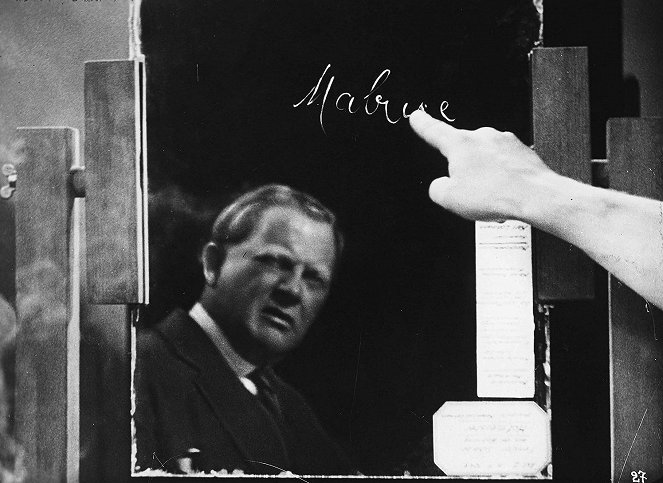Reżyseria:
Fritz LangZdjęcia:
Fritz Arno WagnerObsada:
Rudolf Klein-Rogge, Thomy Bourdelle, Gustav Diessl, Rudolf Schündler, Jim Gérald, Theo Lingen, Monique Rolland, Camilla Spira, Otto Wernicke (więcej)Opisy(1)
The tenuous and terrified atmosphere of Germany on the eve of Nazi ascendancy is cleverly evoked in Fritz Lang's THE TESTAMENT OF DR. MABUSE. The film opens with former police officer Hofmeister frantically warning police inspector Lohman of a mysterious gang's activity. He is especially insistant about the gang's leader, but is stopped in mid-confession before he can reveal the leader's identity. Dr. Baum runs the insane asylum where former arch criminal Dr. Mabuse is kept after going insane from his attempts to elude the police. After being incarcerated, Mabuse began writing reams of gibberish prose that gave complex instructions for how to commit crime sprees. When a fellow doctor confronts Dr. Baum with evidence that these exact crimes are coming true, he is mysteriously assassinated. Kent is an unwilling member of the gang and after taking their newest orders from a disembodied voice, he decides to leave the gang. Lohman continues to search for the identity of the gang's leader, as the crime sprees continue, and Mabuse's ghost begins to haunt Dr. Baum. As all of the characters speed chaotically towards the film's dark climax, the idea of a madman controlling a mass of hypnotized people and causing them to commit crimes that he premeditates creates a mystical and simultaneously potent political allegory of Lang's time. (oficjalny tekst dystrybutora)
(więcej)Recenzje (1)
It is incredible how easy it was for Fritz Lang to transition from silent film to sound. It's as if he had been making sound films his whole life. In the first scene, you may feel that the concept of sound and film is not quite there yet, but then you realize that it's all intentional and those sounds come at you oppressively. The plot is a bit B-movie, but I would definitely not see that as a negative. It provides room for stunning effects that could definitely not look better as digital.
()

